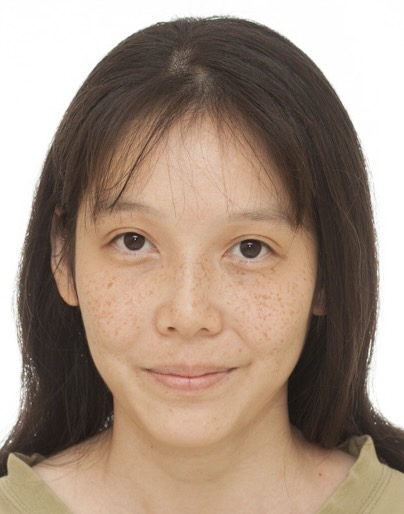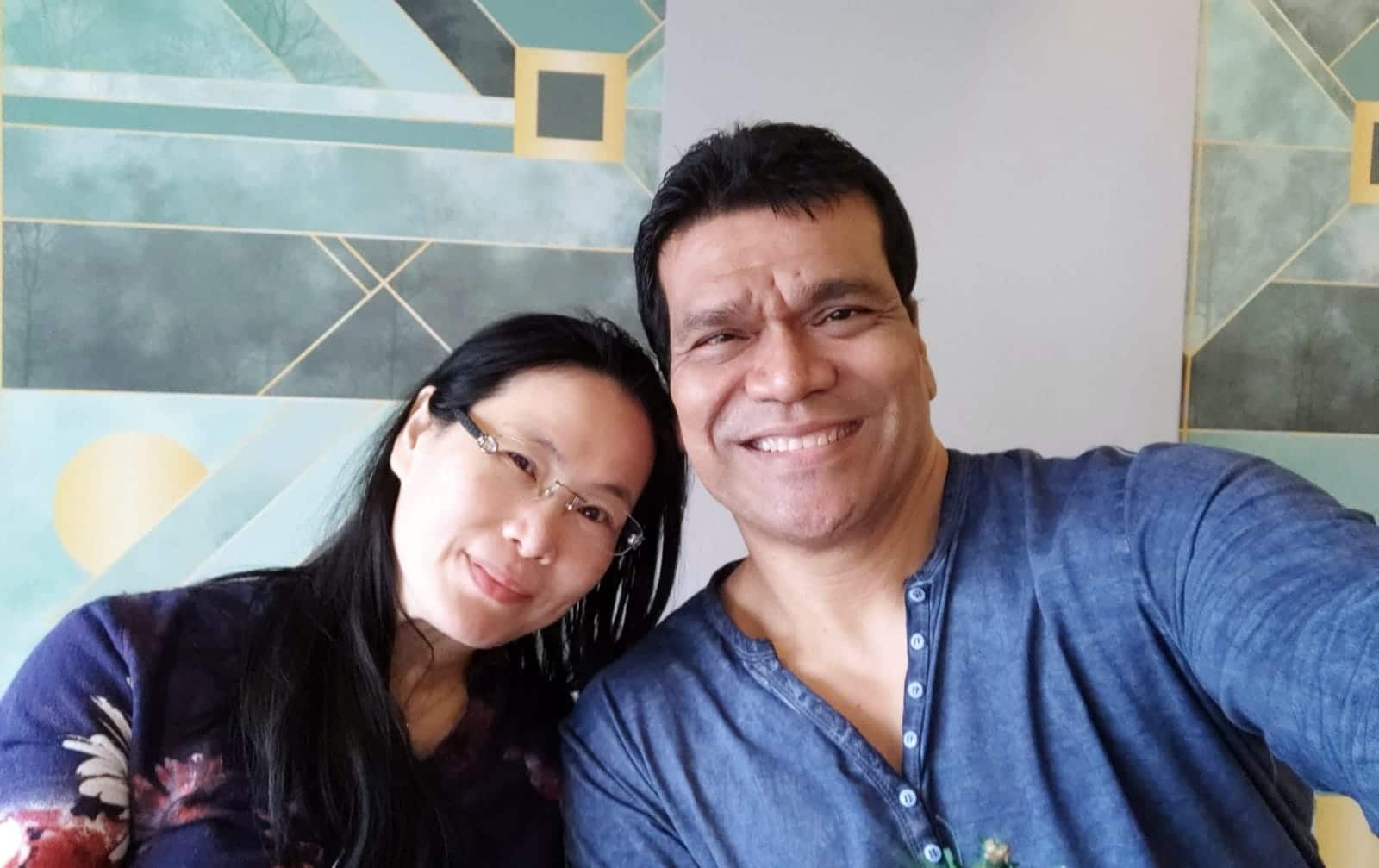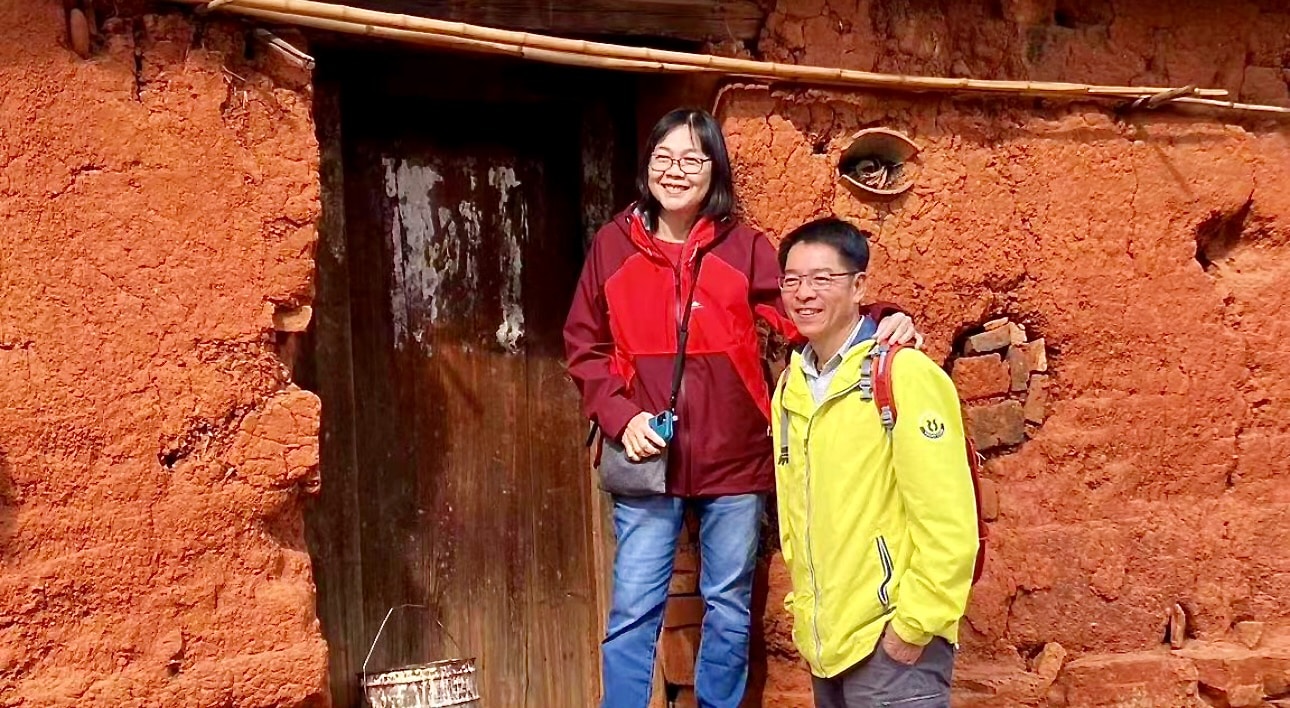Is this Home, Truly? Missionary kids share their journey of returning to Singapore
Sharon Szto // September 4, 2021, 9:09 pm

Missionary kids returning with their families to Singapore may bear a Singapore passport and citizenship, but may have little by way of local identity, says Sharon Szto, whose parents were missionaries in Japan for several decades. Photo courtesy of Isaac Sng, who spent his early years in China.
“I joined Pierce Secondary School after coming back from Cambodia where I grew up. In terms of the identity of being a Singaporean, most people have the idea that Singaporeans have a whole lifeline charted out … from PAP kindergarten to NSF, and on to NUS or a local tertiary institution. Most missionary kids are plopped into the middle of the timeline and they try to assimilate into it; it is harder or easier for some … I had no shared experience, for example, no PSLE to make me Singaporean.”
“I have studied and worked through the subjects but had no official documents to prove that I had an education since I was home schooled. Coming back to Singapore was hard as my application to polytechnics were rejected, partly because they did not accept my certificates.”
“My older sister had a tough time adjusting to the academic demands for JC1 and ‘A’ levels. For me, returning and entering at Secondary 3 in Singapore was okay academically but I had a tough time in making friends.”
Missionary Kids (MKs) do not typically get a calling to go to the mission field. They are taken there by their parents when they are young, or sometimes from conception in an overseas setting.
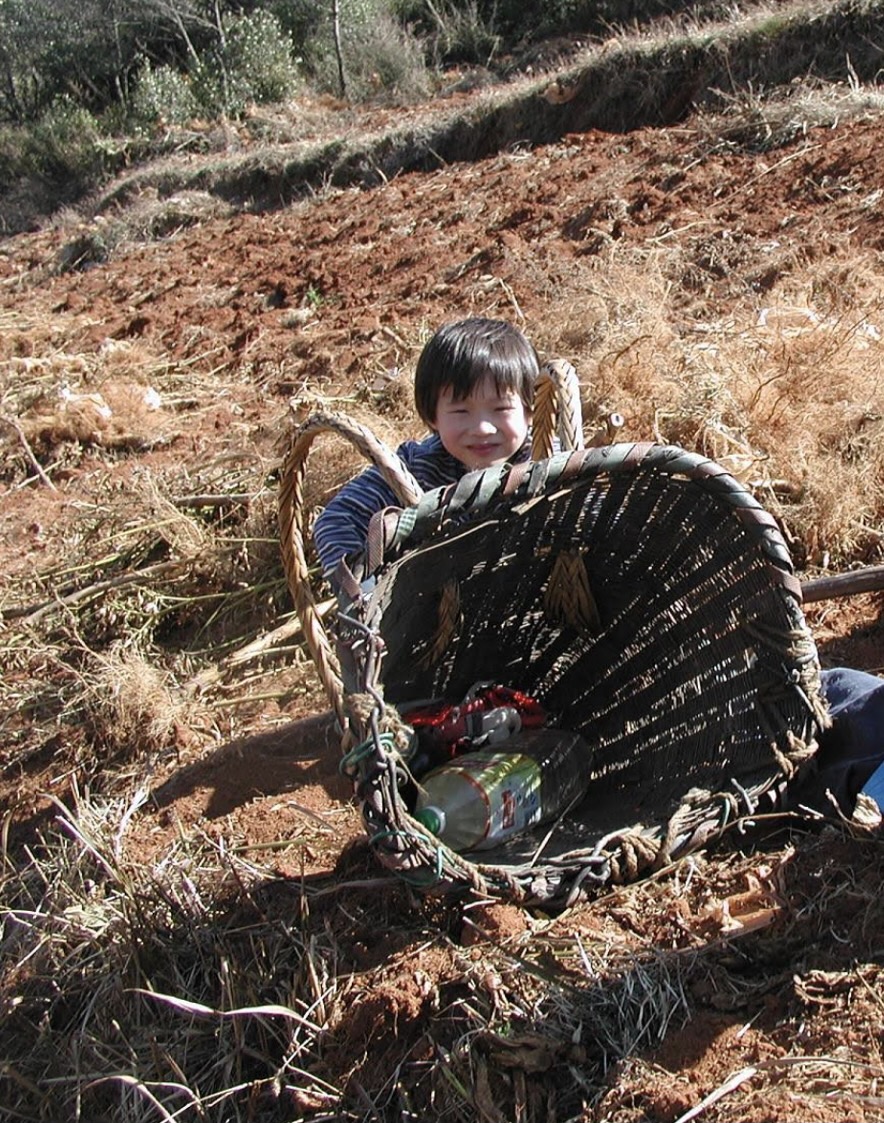
Isaac Sng attended primary school in China, where he was the only foreigner in his class. Photo courtesy of Isaac Sng.
Then one day, they fly back to Singapore and are parachuted into our educational system. What are the challenges? What are the unspoken emotions? And is this unfair on them?
This was the question posed to three young adults whom Dr Tan Lai Yong had invited to share their reflections on Zoom chat Back to SGP schools: A dialogue with Missionary Kids about their educational journeys.
The dialogue with the youths, who had spent their childhood and early teens as MKs, was organised as part of the annual mission month at Bethesda Frankel Estate Church.
“I had no shared experience, for example, no PSLE to make me Singaporean.”
The small, pre-registered audience from Singapore as well as Singaporean families currently overseas, had the touching opportunity to listen to what the three MKs had to say regarding re-entry into Singapore life.
Missions is different from immigration in the sense that there is always the feeling of transience hanging overhead. In some situations, a family might be required to leave abruptly.
Entry to the mission field and departure from that field mark major transition milestones in a missionary family’s life.
For missionary kids, the re-entry reverse culture shock is often the more impactful of the two transitions.
This is hard for people to understand. After all, the missionaries are returning home.
But their children do not have the same internal identity. They bear a passport and a citizenship, but little else.
The Singaporean identity
Many supporters on the home front do not understand why “home” would be a difficult concept for what the missionary world dubs Third Culture Kids (TCKs).
Each of the youths in the Dialogue – Kai En, Isaac Sng and Benedict Tan – had left Singapore before or during their early primary school years.
Now in their twenties, the three had spent their elementary school years abroad in countries in Asia. Isaac and Benedict returned to Singapore during their secondary school years, while Kai En returned at 18.
Kai En was home-schooled by her parents when young and attended a hybrid online/classroom hybrid for her secondary school years. She is currently a Year 2 student at at La Trobe University (offered by Singapore’s PSB Academy), studying biomedical science.
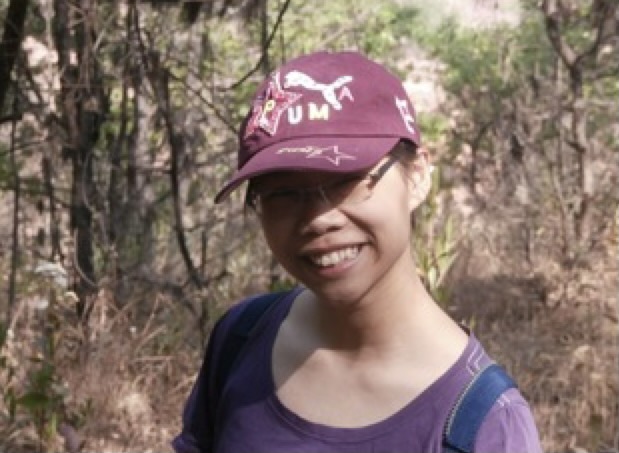
“Some people have good friends when they leave Singapore. But I have nobody here since I was brought overseas from very young,” says Kai En.
Isaac attended primary school in China, where he was the only foreigner in his class. He did his ‘O’ levels at a secondary school in Singapore and is currently a Year 2 Geography student at the National University of Singapore (NUS).
“There wasn’t anything to look forward to in coming back.”
Benedict attended international primary schools in Cambodia, then returned to Singapore for his secondary school and polytechnic. After National Service, he pursued his undergraduate studies and now has a Masters in occupational therapy.
Said Kai En: “Some people have good friends when they leave Singapore. But I have nobody here since I was brought overseas from very young. There wasn’t anything to look forward to in coming back.”
Both Isaac and Kai En shared the view that “home is where mum and dad are” and it helped that, when they were coming back, their parents had already settled on where the home in Singapore would be.
For Kai En, the mobility of missionary life had “ingrained in (me) very clearly that this world is not (my) home. We are sojourners on this earth”.
So home and identity are big issues for MKs.
Struggling with the academic system is one of the most formidable challenges.
For example, the Math standard in Singapore is generally higher than overseas. Mother Tongue is another huge hurdle. Benedict took French instead of Chinese in secondary school.
“People did not understand why, as a Singaporean and looking like every other teenager around me, I could not speak Chinese,” he said.
Churches can help with social adjustment
Churches have a role to play in providing important support for returning missionary families.
If the church youth group can assimilate the TCKs with love and acceptance, this goes a long way towards social adjustment and creating a sense of home.
But often, local teens may have less exposure to poverty or regional issues, and when they talk or joke about their primary school days in Singapore, the MKs may feel side-lined as they do not share those experiences.
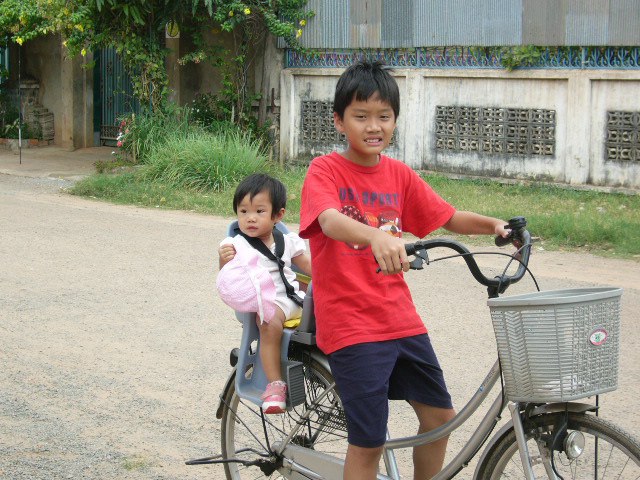
Benedict with his sister in Cambodia. Photo courtesy of Benedict Tan.
If the community can provide academic support by way of offering tuition and forming study groups for the TCK, this would help build the youths’ competence and confidence. The camaraderie is an added benefit.
Kai En bravely cautioned the audience that “well-meaning people had (and have) lots to say about the choices I should make and about which schools to apply to. Even now, in my second year of university, there are still people who question my decision”.
When local kids talk or joke about their primary school days in Singapore, the MKs may feel side-lined.
“But please listen to us before telling us what to do!” she added.
Parents in the audience were encouraged by the frank sharing of raw struggles.
The dialogue gave a family with three children, who is returning to Singapore soon, a good platform to discuss issues within the family about their challenges ahead.
Mrs Belinda Ng, who lived for a few decades in Niger and who had brought up her children there, also shared.
Two other families who are preparing to serve overseas thanked the three young panellists for their precious insights and felt assured that the Lord is with them even as they face many known, and unknown, challenges.
Praising God in pilgrimage
The dialogue reminded the missionary families in the audience about planning for their children’s return journey, as well as on keeping communication lines open within the family. It is important to support each child with discerning and listening hearts as they have different strengths, emotional needs and academic interests.

“People did not understand why, as a Singaporean and looking like every other teenager around me, I could not speak Chinese,” said Benedict, seen here with his family. Photo courtesy of Benedict Tan.
Church mission committees were encouraged to be aware of MK and TCK issues: For the students, good documentation of the child’s schooling activities overseas is valuable.
Ultimately, given the choice, the three youths interviewed would not change their lives.
Isaac shared: “I really appreciate the missionary kid experience”, which has imbued him with a global perspective and outlook.
“Having to trust in God to hold open doors and close doors really helped me to see how God is involved in my life.”
He said: “There were a lot of turbulent times deciding which path was better. Having to trust in God to hold open doors and close doors really helped me to see how God is involved in my life.”
The heart-warming dialogue closed with words from Psalms 84:
Blessed are those who dwell in your house;
they are ever praising you.
Blessed are those whose strength is in you,
whose hearts are set on pilgrimage.
Apt words to remind us that, as Christians, no matter if we relocate or stay put in a country, we “whose hearts are set on pilgrimage” are made to praise God.
ROOTS is a TCK support network that organises an annual retreat for returning MK youths. You can connect with them here or find them on Instagram @TckRootsministry.
Singapore’s Ministry of Education also has a charted pathway for retuning Singaporeans.
RELATED STORIES:
Of chicken-wallas and Big Macs: A missionary gives glimpses of life far from home
We are an independent, non-profit organisation that relies on the generosity of our readers, such as yourself, to continue serving the kingdom. Every dollar donated goes directly back into our editorial coverage.
Would you consider partnering with us in our kingdom work by supporting us financially, either as a one-off donation, or a recurring pledge?
Support Salt&Light